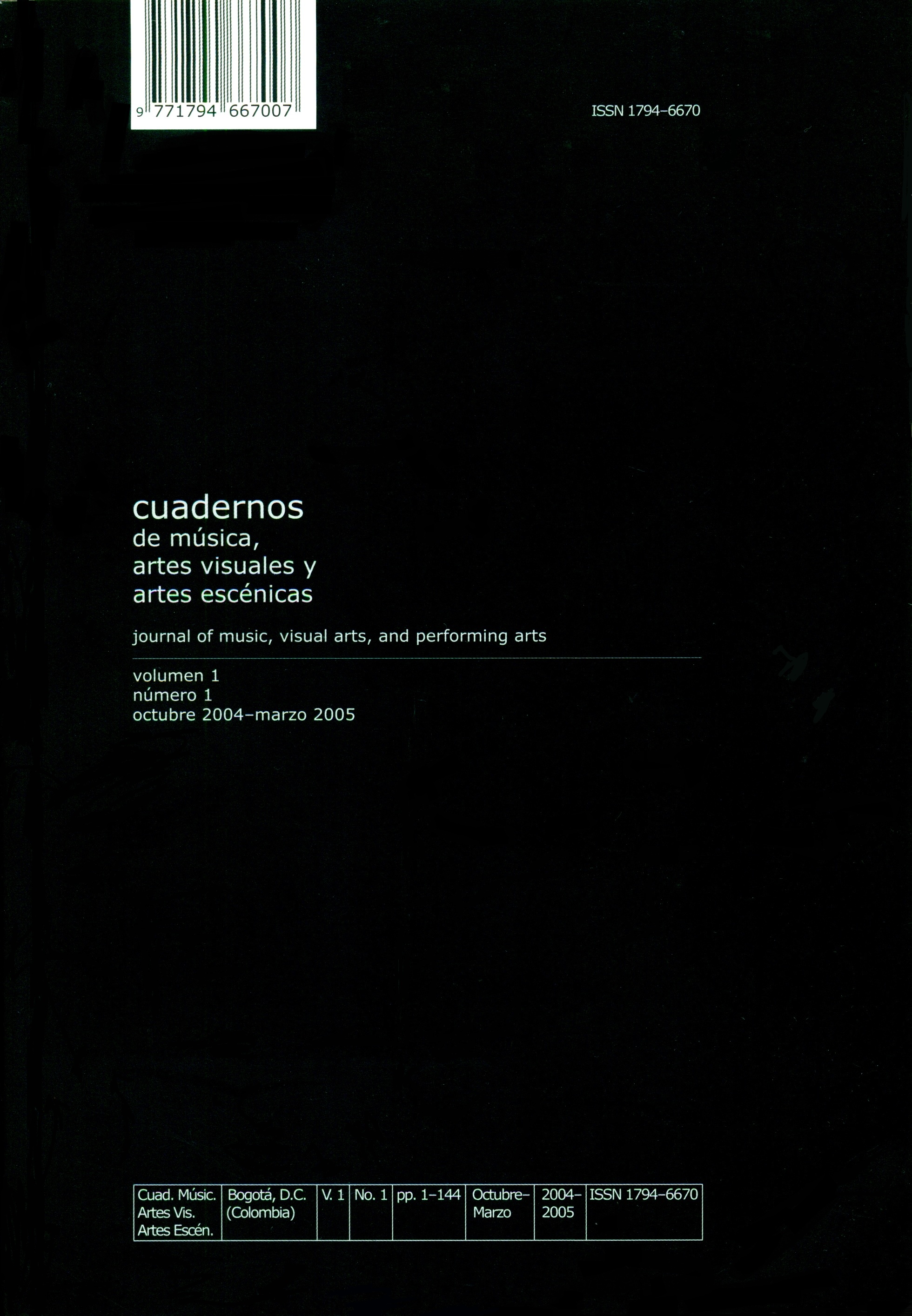Abstract
At the beginnings of Ethnomusicology as a science, it is possible to identify a strong interest in translation of other music and delimitation of musical features. This rush, contributed to the stereotyped marking of non–occidental music, producing at least two side–effects. In the first place, it made disappear –in the representational horizon– the urban, artistic, European music, which, even today, is considered in many fields as a “tacit synonym” of the term music.2 In the second place, it initiated a series of complex subject–building processes, linked to several identity effects that necessarily are present in non–urban, non–artistic, and non–european music. The centrality of the term identification in the consumption of what I call here ethnic music, is important to understand how, in the globalized recording market, there is a new esthetic category, that seizes the marginality of this music –and the simultaneous desire/rejection movements that they generate– to promote sales and move the market. This process is constituted by global discourses (multiculturalism, biodiversity), which are part of an ethnopolitic strategy, based on the pacification of difference. However, as long as the marking of otherness is done by using stereotypes, which are fixed and simplifying representations, there is always an open space thru which this ethnic music can emerge to destabilize the regime of representation that classifies them.This journal is registered under a Creative Commons Attribution 4.0 International Public License. Thus, this work may be reproduced, distributed, and publicly shared in digital format, as long as the names of the authors and Pontificia Universidad Javeriana are acknowledged. Others are allowed to quote, adapt, transform, auto-archive, republish, and create based on this material, for any purpose, provided the authorship is duly acknowledged, a link to the original work is provided, and it is specified if changes have been made. Pontificia Universidad Javeriana does not hold the rights of published works and the authors are solely responsible for the contents of their works; they keep the moral, intellectual, privacy, and publicity rights.
Approving the intervention of the work (review, copy-editing, translation, layout) and the following outreach, are granted through an use license and not through an assignment of rights. This means the journal and Pontificia Universidad Javeriana cannot be held responsible for any ethical malpractice by the authors. As a consequence of the protection granted by the use license, the journal is able to publish retractions or to correct information already published. Publishing contents in this journal does not generate royalties for contributors.


